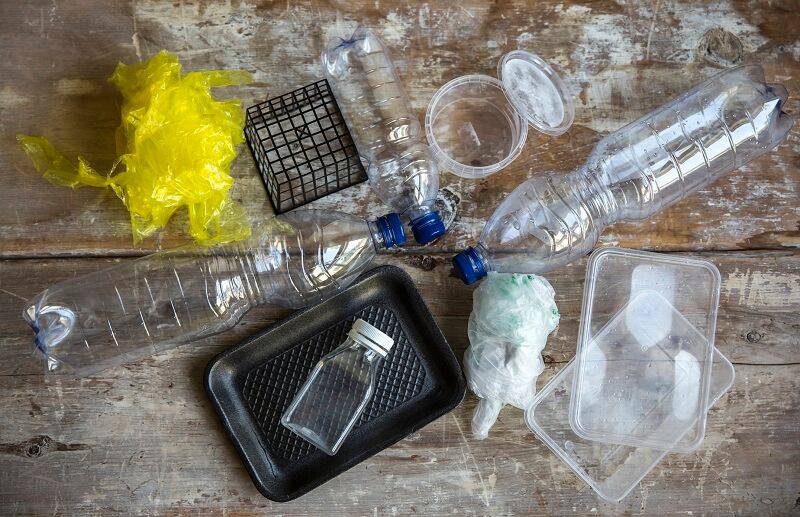The Natural Source Waters Association is urging consumers to stop viewing plastic bottles as ‘single-use’ after its research revealed that 30% of people in the UK did not realise that plastic bottles were fully recyclable.
It claimed this confusion “can lead to well-meaning people putting 100% recyclable PET plastic drinks bottles that can be turned into new drinks bottles into the general waste”.
The NSWA, which represents companies such as Nestle and Danone, said it prefers the term “recyclable bottle - as it is clear what’s the right thing to do with it.”
Nearly half (46%) of those questioned by the NSWA said they thought that the term ‘single-use plastic’ meant the item described had to go to landfill or for incineration. While this would accurately describe unrecyclable ‘single-use’ plastics such as balloons, stirrers, cotton buds and straws, which are in the process of being banned in England, it is not accurate for items such as PET drinks bottles, which are 100% recyclable and can come back as another bottle if they are recycled.
The NSWA warned that this confusion over the term ‘single-use’ is likely to have an adverse effect on the recycling rates of plastic drinks containers in the UK.
“If we’re really going to improve recycling rates, we all need to use clear, positive language,” said Bryan McCluskey, Circularity Director at NSWA. “The term ‘single-use plastic’ is not helping people to do the right thing with their plastic bottles.”
War on plastic
The organisation suggested that the term ‘single-use’ has been unfairly demonised by shoppers.
At Davos last month, Coca-Cola ruled out scrapping single-use plastic bottles because people demand it. Coca-Cola’s senior vice-president for sustainability and public affairs, Bea Perez, told the BBC: “Business won’t be in business if we don’t accommodate consumers. So as we change our bottling infrastructure, move into recycling and innovate, we also have to show the consumer what the opportunities are. They will change with us.”
Coca-Cola’s recent advertising campaign also claimed: “Single-use plastic bottles are only single-use if they are thrown away. The plastic in our bottles can be recycled many times.”
However, some activists demand plastic bottles are ditched entirely. Sian Sutherland, of A Plastic Planet campaign group, told FoodNavigator: "Yet again, blame for the plastic crisis is shamefully placed at the feet of shoppers. Let's be clear, the constant pursuit of recycling to solve our plastic waste problem is what's misleading, not the use of the word single-use.
"The reality is that with only 9% of plastic ever having been recycled (once, rarely twice); surely 91% of all plastic is actually single-use. Whether plastic is recycled or not, it is always eventually going to be either incinerated, end up in landfill or pollute our planet. Plastic continues to be pumped out at an alarming and ever-increasing rate despite our failure to recycle it.
"Rather than spinning language to justify our plastic use, how about taking responsibility for the crisis and cut it out at source. Any solution which doesn't do this will do nothing to combat plastic pollution and only delay any real change."
‘If a drink bottle is put in the wrong bin it won’t get recycled’
The NSWA called for a ‘clear and balanced discussion on packaging’ and cited the Green Alliance’s Plastic Promises report, which warned against the consequences of demonising plastic and rushing to find alternatives, ‘to avoid the risk of simply substituting current environmental problems with new ones'.
The NSWA says it wants to help improve recycling rates via positive messaging that encourages people to put items such as PET drinks bottles in the recycling, which will help to stop them ending up in landfill or the environment. It will also help secure the high quality, recycled material for producers are keen to use in their packaging, it observed.
“The problem seems to be that the term ‘single-use plastic’ is being applied to both unrecyclable and recyclable items, leading to confusion around what to do with them when finished with,” a spokesperson told FoodNavigator. “We are worried that lumping recyclable items such as drinks bottles alongside unrecyclable items like straws, stirrers and cotton buds under the heading ‘single-use’ is leading to people not recycling them.
“Our research just related to drinks packaging so we could not comment on whether this problem is specific to drinks packaging but as all plastic drinks bottles are 100% recyclable and collected by 100% of Local Authorities. Our aim is to highlight the findings of this research and encourage people to use clearer language.”
“We want the language used around recyclable packaging to be clear so people know to recycle it. We don’t want to see materials that are recyclable going to landfill and being lost, or worse still getting into the environment. Our members support a circular system and see packaging as a valuable resource.
“All PET drinks bottles are 100% recyclable and can come back as another bottle multiple times, reducing the amount of virgin plastic required. If a drinks bottle is put in the wrong bin it won’t get recycled.


